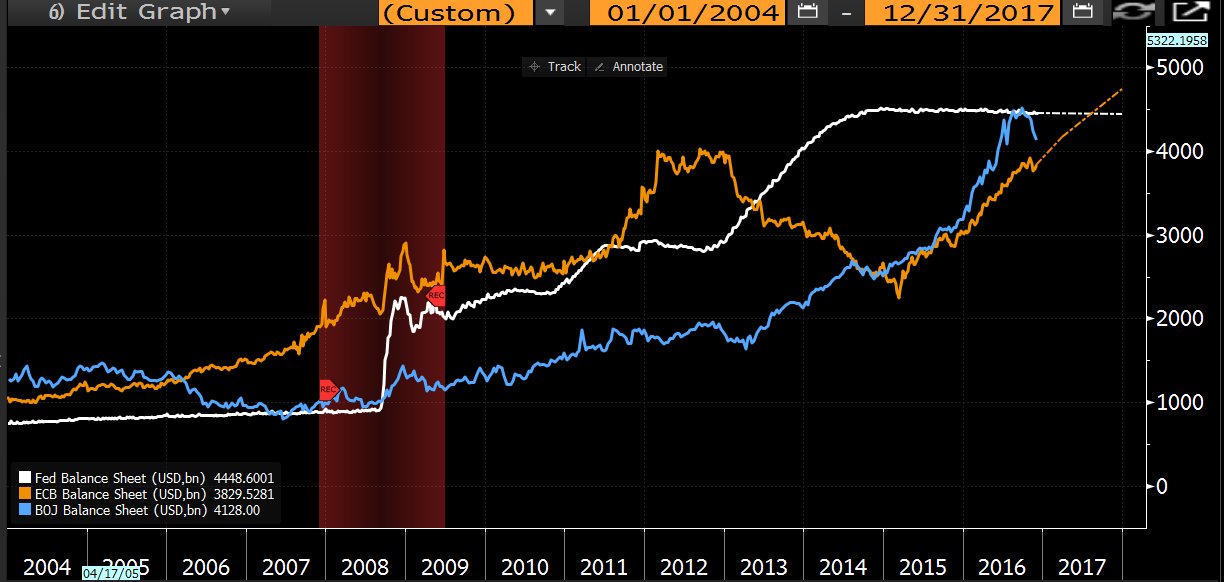In early 2009, roughly at the time when this blog was launched which coincided with the start of the greatest monetary experiment of all time, we warned that there are two ways it will end: either in hyperinflation, or a deflationary supernova, the failure of currency and, eventually, barter. Now, almost 8 years later, some of the world’s top hedge funds are in agreement, and they are worried.
As the WSJ reports, these prominent hedge fund managers join an increasingly bigger and louder chorus which says central bank bond buying programs that are pumping trillions of dollars into global markets will end badly.
In yesterday’s main event, the ECB said it would extend its asset purchase program to the end of next year, buying bonds at a reduced rate. As the following chart from BBG projects, at the ECB’s revised rate of bond purchases, its balance sheet will soon surpass that of the Fed.

So what happens next? Prominent managers have told The Wall Street Journal in recent interviews of their doubts about the endgame for quantitative easing around the world.
“There’s no non-messy way out of this,” said Luke Ellis, chief executive of Man Group, one of the world’s biggest hedge-fund firms with $80.7 billion in assets. “There’s two versions” of how this ends, he added. Either central banks could move to so-called ‘helicopter money,’ where they buy debt from the government, which then spends the proceeds or gives it to the population to spend. This “for a few years looks golden then leads to hyperinflation,” he said. Or the speed at which money circulates within the economy could grind to a halt. “Then you effectively have a barter economy,” he said.
In a series of exclusive WSJ reports, hedge-fund executives overseeing around $280 billion in total highlighted a range of problems created by quantitative easing. The problems they highlight are precisely those that QE was designed to solve, and are exactly the same problems we warned about since the 2009, for which we have been repeatedly branded some variation of “fake news.” Now the skepticism has become mainstream.













Leave A Comment